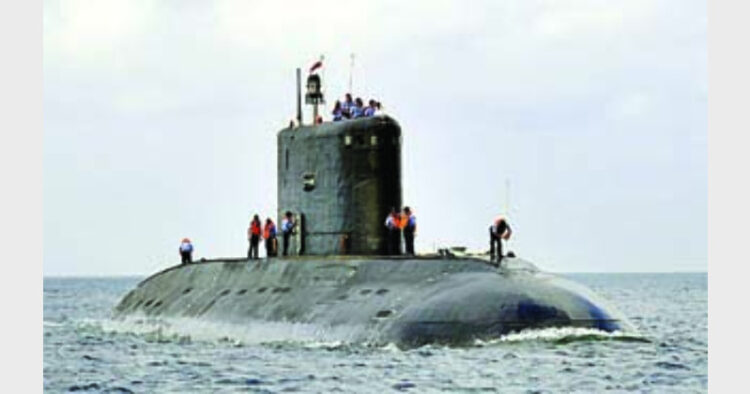Mediawatch concerns itself with what the media – alas sadly only the English print media – has to say about any issue that is worthy of having attention drawn to. The latest issue is the fire on board the submarine INS Sindhuratna which claimed the lives of two officers and injury to seven sailors. But it is not so much the death of two officers – important though it is – that is shocking. It is the abnormally high evidence of accidents that one has witnessed in the last six months that is – and should be – the cause for concern.
As a result of the latest incident, Admiral DK Joshi has resigned owning moral responsibility for the accident. This has brought him high praise. Deccan Herald (February 28) said the Admiral’s resignation “has strengthened the idea of responsible office in public service.”
The Hindu (February 28) similarly said that “In a nation where instances of admission of individual responsibility are desperately rare, Chief of Naval Staff Admiral DK Joshi’s resignation following the tragic accident on INS Sindhuratna is a welcome evidence that some officials at least still hold themselves to the highest standards.”
The Times of India (February 28) similarly said that “Admiral Joshi’s prompt resignation owning moral responsibility is praiseworthy.”
The New Indian Express (February 28) similarly praised the Admiral for taking ‘moral responsibility’ as reflecting “the high standards of public life that the Admiral evidently stood for”. As the Express put it “the UPA Government has totally failed to upgrade the ageing fleet of the Navy as well as vital equipments of other armed forces.” The paper said “even their immediate critical requirements are not being met due to lack of funds and bureaucratic wrangles.” This is something which Defence Minister AK Antony must answer for. As it described the situation “it was for him to ensure that India’s defence preparedness was not compromised and in that he has failed miserably”.
Mr Antony, like Prime Minister Manmohan Singh are supposed to be above all corruption. That is not questioned. What is questioned is the total failure of both in the administration of the country. Actually, in addition to the resignation of the Admiral both the Prime Minister and the Defence Minister should also resign. One can ask for a Special Committee to study the fallibility of the bureaucrats. But that would just be one more Committee which will take five years to submit a report by which time everybody would have forgotten about Sindhuratna, let alone Sindhurakshak.
Now take what the Times of India asked. The series of frightful episodes concerning our few submarines point to a troubling question, “How well is the Navy… which seeks to play a dominant role in the Indian Ocean, Arabian Sea and Bay of Bengal equipped to maintain its assets during peace time?” And it answered its own question, saying “not very well, as the number of maritime mishaps and subsequent lack of corrective action indicate.”
Significantly the paper point out “more than half of submarines have completed 75 per cent of their operational times” and “effectively, very few guard the coastline”. What is just as bad, the Navy’s plans to build, with French assistance, a new class of conventional submarines called Scropene have been delayed, leave alone the rapid expansion and modernisation programme envisioned in the face of concerns about China’s naval ambitions. Isn’t all this disturbing? Who is to blame? As the paper put it “passing the buck to bureaucrats or political leaders does not hold much water.” And so, who in the end is responsible?
According to The Hindu, the problems are not just related to the Navy alone. As it put it “perhaps most dangerous, all three services face large-scale deficits of officers because the Armed Forces’ pay scales and service conditions are too poor to attract the skilled young people modern militaries need…”
The Telegraph (February 28) also had some strong views to express. It said: “The abrupt resignation of the Navy Chief, DK Joshi, before his retirement in August 2015 has exposed – and further caused, unexpected disarray instead. The Government’s rapid acceptance of Admiral Joshi’s resignation and its immediate nomination of the Vice-Chief in an officiating capacity show an eagerness that is being perceived as somehow not decorous and also demoralising for the forces.”
The Navy has been raising questions about the Defence Ministry’s failure to replenish a diminishing force. Obviously there is much more to the Admiral’s resignation than most of us know and hopefully more information will be available in the coming days.














Comments